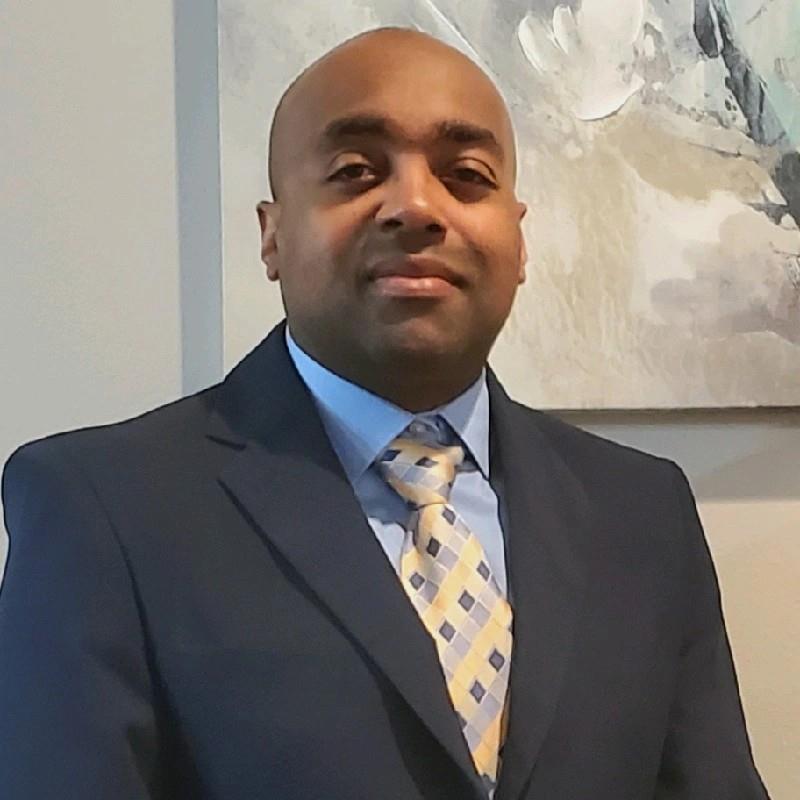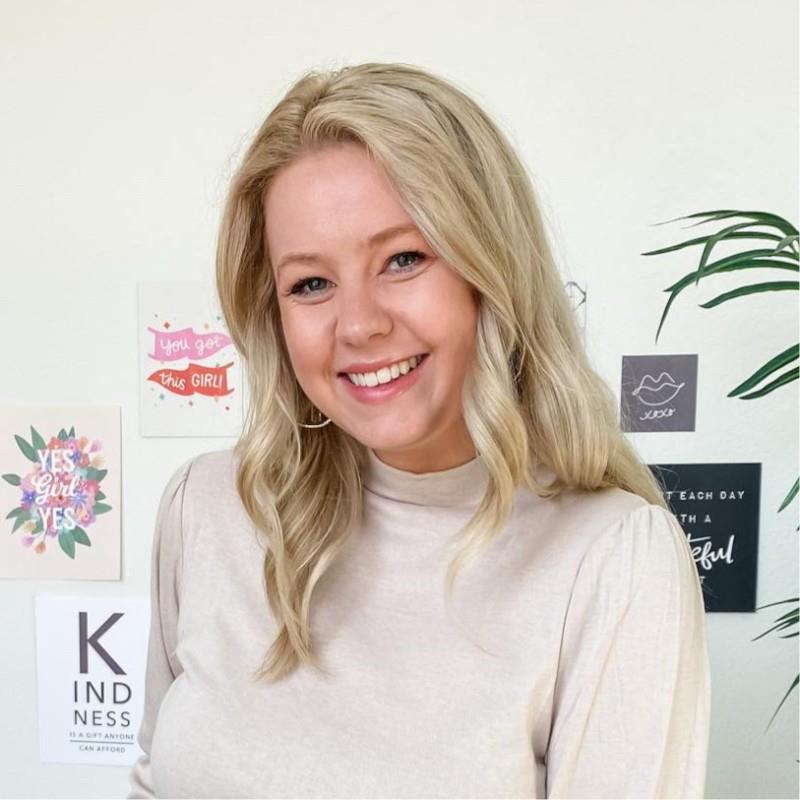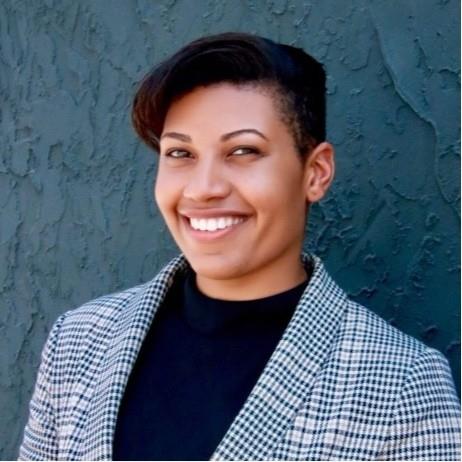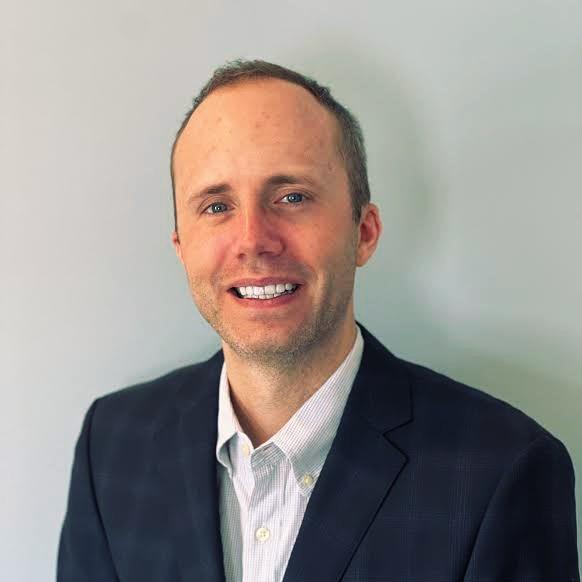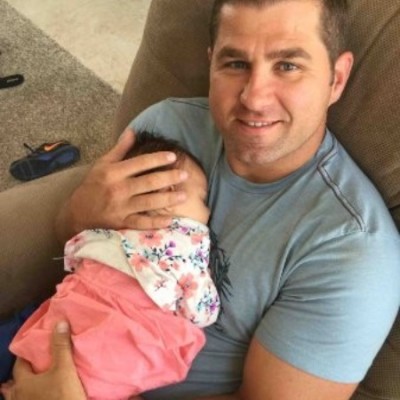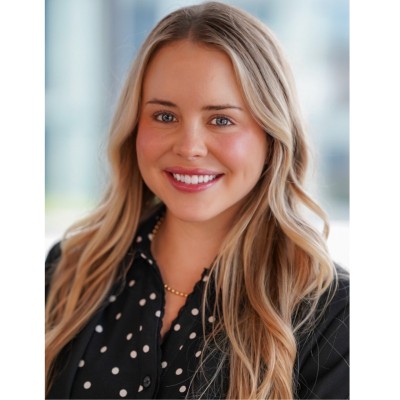Unlocking Success in Health Tech Sales
Brendan McAdams, sales coach, author of Sales Craft, and founder of Kiinetics, joins us to drop serious knowledge on what it takes to succeed in health tech sales. With deep B2B expertise and a sharp focus on early-stage startups, Brendan works with founders and commercial teams to land enterprise clients, close complex hospital deals, and avoid the costly sales mistakes that kill momentum.
This episode is your roadmap for transitioning from traditional medical sales into the fast-paced, high-stakes world of health tech. Brendan breaks down how to navigate hybrid sales environments, how to think like a founder when you’re selling, and why success today requires more than just clinical knowledge, it demands strategic thinking, empathy, and execution.
We dive into the art of the consultative sale. Brendan shares how to lead with curiosity, engage buyers without pressure, and know when to walk away. It’s not just about closing deals, it’s about building trust, long-term relationships, and referenceable revenue that makes or breaks early-stage startups.
You’ll also hear why sales is more like a sport than a job. From staying sharp in solo roles to handling rejection with poise, Brendan offers tactical advice on staying motivated and leveling up your game. Plus, we explore how platforms like Expertscape are changing the way we think about clinical expertise and marketing in health care.
If you’re in medical sales and thinking about breaking into health tech, or if you’re already there and want to scale faster, this episode is packed with straight-up gold. Brendan brings the clarity, the playbook, and the mindset shift you need to sell smarter, lead better, and grow faster.
Connect with Brendan: LinkedIn
Connect with Me: LinkedIn
Love the show? Subscribe, rate, review, and share! Here’s How »
Want to connect with past guests and access exclusive Q&As? Join our EYS Skool Community today!
Watch the episode here:
Or Listen to it on your favorite platform:
Episode Transcript:
00:05 – Samuel Adeyinka (Host)
Hello and welcome to the Medical Sales Podcast. I’m your host, samuel, founder of a revolutionary medical sales training and mentorship program called the Medical Sales Career Builder, and I’m also host of the Medical Sales Podcast. In this podcast, I interview top medical sales reps and leading medical sales executives across the entire world. It doesn’t matter what medical sales industry from medical device to pharmaceutical, to genetic testing and diagnostic lab, you name it. You will learn how to either break into the industry, be a top 10% performer within your role or climb the corporate ladder. Welcome to the Medical Sales Podcast and remember I am a medical sales expert sharing my own opinion about this amazing industry and how it can change your life. In a nutshell, describe what it means to be in health tech sales. Sure.
00:56 – Brendan McAdams (Guest)
So this it’s a by the way medical sales is a really good springboard into health tech and onto the software technology side of things. Because if you’re in the medical sales side of things, you’re in with hospitals, you’re in with doctors, you’re in with nurses and all the clinical people and the administrative people and operations people, and so you’re getting a really good feel for how healthcare works and that’s an invaluable education. Healthcare works and that’s an invaluable education, and so then that can be a springboard to selling on behalf of a technology company that’s selling into hospitals or health plans. Got it and so and one of the things that if you’re coming from the medical sales side of things, you know how complicated things are, how doctors think, how nurses think, the dynamics between all those people and the administration and so forth. So that gives you a kind of a leg up to understand to go and sell technology into that same set of people and organizations. So would you say okay so then?
01:56 – Samuel Adeyinka (Host)
so health tech is the medical software and its uses, and just selling software to organizations in health.
02:04 – Brendan McAdams (Guest)
Could be. Could be software. It could be some sort of a solution like billing process. It could be a device, you know. It could be a care management application that nurses use, like a post-op. You know you get to send someone home with an app. It could be any number of things like that. It’s kind of the broad. It’s. It’s the technology side of the operational stuff that goes on inside of healthcare, on the health plan side as well as on the hospital health system side sales rep to get into healthcare tech sales, like, could you be someone that’s a college grad or a clinician even?
02:47 – Samuel Adeyinka (Host)
Yeah, you know what I want to? I want to be in health. I want to be a medical sales rep for healthcare tech.
02:50 – Brendan McAdams (Guest)
Yeah, yeah, yeah, Of course, and and again, if you’ve got, if you’re, if you’re coming straight out of college and you and you don’t have healthcare experience, it’s a little bit more of a there’s. There’s a learning curve, a greater learning curve than there would be if you’d come from a clinical background or you’ve been a nurse or you’ve been on the clinical side of things, Because in those areas you’re being immersed in all the stuff that doctors and nurses and all the clinical staff and the operations people have to deal with. But yeah, you absolutely can get in and sell into that world.
03:32 – Samuel Adeyinka (Host)
Yeah, that’s awesome. So then let’s talk about it. So, healthcare tech I think a lot of people believe that healthcare tech sales can be remote selling, meaning they’re the kind of jobs that you just wake up and you’re doing cold calling, as in phone calling, and there’s not a lot of field work. Tell us the truth. Is that the case? And if it’s not a lot of field work, tell us the truth. Is that the case? And if it’s not, tell us what it really is. You, you you can.
03:50 – Brendan McAdams (Guest)
There’s a fair amount of the ability to work from home or work remotely and and so forth, because a lot of things, especially now you know in the world of where today a lot of this conversation takes place via zoom calls and and the like and phone calls and email and that sort of stuff, text messages. But it’s still critically important if you’re dealing with complex sales and they tend to be complex in the healthcare world because there are a lot of people involved, there are a lot of constituents and stakeholders that have a say in it and hospital sales, healthcare sales, sales into health plans, sales into pharma there tends to be a fair amount of collaboration that’s required. So there are a lot of people involved. A lot of people get to weigh, roam the halls of the hospital, get to know people you can. You can establish that, those levels of trust, you can establish the relationships. You can understand what’s going on much more than you can by just being on the phone yeah, so would you okay?
04:55 – Samuel Adeyinka (Host)
then would you say that most health tech sales jobs are hybrid of field work and remote or not?
05:06 – Brendan McAdams (Guest)
Well, if, like for your example of like someone straight out of college or straight into the workforce, if they come in in the beginning, they might come in as an SDR, someone that’s doing outbound sales calls right, just outbound call it right. And in that case you’re calls right, just outbound call calling. Right, and in that case you’re remote right, you’re at the desk, you’re making phone calls, talking to people, sending emails, follow up, et cetera, et cetera. That’s a springboard to being more of an outside salesperson and being more of an accountant, executive or what have you, and in that case you know the best people I often say you know you don’t sell the email. You want to sell the in-person as much as you can, or Zoom calls. So there’s more interaction, there’s more nuance, you get to talk to people in more detail and learn more about them and develop more trust and understand their business and their problems and then what they’re trying to accomplish right, all that sort of stuff. So so ultimately, yeah, it’s, it’s much more of a.
06:12 – Samuel Adeyinka (Host)
It’s still an in-person job sure now, yeah, if you’re a clinician, let’s say you’re a physical therapist and you’re saying you know I’m done physical therapy, I want to. I thought I heard about this health tech space. I really want to check that out. Are you, are you needed to go through the SDR route, from what you’ve seen, to become an account executive and and and beyond, or can you go straight to account executive because you have that healthcare background?
06:35 – Brendan McAdams (Guest)
You can. You know you can absolutely go. In fact, you probably should go that route right. If you’re, if you’re, a physical therapist and you and you know how, you know how your patients behave, you know how the the how things work inside that world. If you go to a, if you go to a, a company that’s in the physical therapy space, it’s got a solution for physical therapists right or it’s got some sort of a device for for that, for that space you could go to that. You could go to that company and say, hey, I, you know, I know the space, I could, you know you could go to that company and say, hey, I know the space, I could hit the ground running and, yeah, you might need to learn something about sales.
07:13
That’s one of the things I tend to do. Is one of the things I do is someone says, hey, I’m hiring this new person. I don’t have a sales manager might, or a DPS sales might say I’m hiring this new person. A sales manager or a VP of sales might say I’m hiring this new person, I don’t have time to get them up to speed, but I’ve hired them. Brendan, spend 90 days with them and teach them fundamentals process how to structure a phone call, how to close a call, how to qualify, how to discuss the sales journey, and then I help them. I help them ramp up to get up to speed.
07:45 – Samuel Adeyinka (Host)
Got it Are most of the clients you work with. Are they large teams with 50 reps or smaller companies with maybe 15 reps?
07:55 – Brendan McAdams (Guest)
Yeah, it’s really. It’s from zero revenue up till about 20 million, so that could be 20 or so million. After that they tend to have too many people or they’ve got enough infrastructure in place. But a company that’s doing 10 million a year might have five or six or 10 reps and I will work with one or two or all of them, work with them on an ad hoc basis as they need it, or I’ll do some training for them, or I’ll just work on strategy with them, especially if they’re going into a new market or they’re rolling out a new product, that sort of thing.
08:31 – Samuel Adeyinka (Host)
Yeah, and do you mostly work with all of the above when it comes to remote versus outfield workers, or is it more players in the field that you spend more time with versus remote?
08:42 – Brendan McAdams (Guest)
Yeah, I don’t work a lot with the SDRs today because that’s a very simple, but I can, and I actually truth of the matter is I’ve done some of that where I’ve done some sales coaching for SDRs in the past, for you know, so you can do that and I can. I certainly do that. When it comes to like doing sales call, you know sales call tune-ups, you know I’ll get SDR calls Well, they’ll. I got on the call. We did a 30 minute demo, blah, blah, blah, and I’ll walk through like you’re not doing this, You’re not doing that, right, but generally speaking, it’s with, it’s with account execs, it’s more with with people that that are either they’re ramping up to be a field sales rep or they’re or they’re struggling or there.
09:20
aren’t there already?
09:22 – Samuel Adeyinka (Host)
so let’s talk about it. You know, think of your field reps that you’re coaching. I mean how? Many years have you been coaching these reps?
09:28 – Brendan McAdams (Guest)
oh me I’ve. I’ve been doing this, for I’ve been coaching for over 10 years. I ran an accelerator, I do a bunch of classes, that sort of thing, so I’ve been doing that for like a long time yeah.
09:39 – Samuel Adeyinka (Host)
So then I want to hear from you what are the and we’re going to start with the reps that think they know what they’re doing first. Right, I’m talking. I want to. I want to hear about your five year plus reps. What are the top three things that I guess, for lack of a better way of saying it, stop doing that you find yourself coaching when it comes to tenure reps and development.
10:01 – Brendan McAdams (Guest)
The things that they should be doing that they’re not doing, yeah.
10:03 – Samuel Adeyinka (Host)
Yeah, the top three things that you consistently see with tenure ref where you’re like, okay, this is why you need me.
10:11 – Brendan McAdams (Guest)
one, two, yeah yeah, oh, that’s good. Well, first of all, that they sell way too early, right? The first thing I can say is that they’re selling out of the gate and and you know as soon as they get on the call, they’re talking about their product and it’s just, or their solution or whatever, and and it’s it’s. It’s a wrong time, right? So in the beginning, you want to learn about them, you want to get your customer talking, so that’s one thing they’re doing wrong. Second thing is they’re interrupting, right, right, one of the things you have to, one of the things and this is kind of fundamental, basic stuff you want to let your customer talk as much as you can. You want to. You want to get them to talk because they they share information about, about what their challenges are, what they’re trying to accomplish, and that helps inform whatever you’re going to say when you, when the time comes, and and they’re going to tell you stuff, and they’re also, if they feel like they have the time and the space to talk, they’re going to tell you stuff. And they’re also, if they feel like they have the time and the space to talk, they’re going to tell you more stuff. They’re going to feel more at ease. They’re going to feel less like they’re being sold to. They feel like you’re talking to someone. They’re talking to someone who’s interested and who just wants to see if there’s a solution to be had.
11:19
The third thing I, I there. There are more, but the third thing that comes immediately to mind is they don’t end the call. They don’t allow time at the end of the call to figure out whether or not there’s a real opportunity. And I think that if you’ve got a 30 minute call, by the time you get to 25 minutes you should be figuring out whether or not there’s like. You want to be talking about things like so here’s what I’ve talked about, here’s what we’ve talked about, blah, blah, blah. So here’s what I’ve talked about, here’s what we’ve talked about, blah, blah, blah.
11:47
What do you think? Do you like it? And open-end questions get a real understanding. Was there anything you didn’t hear that you needed to hear? Was there anything? What didn’t you like? And let them get into that.
12:00
And because one of the things you want to do is figure out if there’s interest, right, you don’t want to have a customer that you’re set up the next appointment and they don’t really want to buy, right, and they’ve just been obligated to.
12:14
Oh, I’ll set up another appointment because he said there’s a next step in the process but there’s really no interest. You want to figure that out. So I think if there’s a possibility to figure out toward the end of the call with enough space so that that person, the other person, has a chance to explain where they are, it allows you to surface any objections or issues or concerns that they may have and it sort of telegraphs that you’re interested in figuring out whether there’s a fit and not just simply trying to make a sale. And, conversely, what’s counterintuitive for apps is if you don’t act like you’re trying to sell, it’s actually much easier to get the sale and to figure out whether or not, because the customers now put it easy and they feel like, oh, this person’s just trying to figure out whether or not they can help me out.
13:00 – Samuel Adeyinka (Host)
Right, right I like that. I like that. Okay, let’s switch gears. Now let’s talk about the new reps. Yeah, same question what are the? What are the three things you keep?
13:10 – Brendan McAdams (Guest)
you consistently see, when it comes to new reps, that they’re always kind of for lack of a better way of saying it trapping themselves into I think one of them, the one that immediately comes to mind, is I don’t think, and one of the things I work on a lot with, with sales reps and new reps in particular, is, I think, having the right mindset and so, you know, having the right level of confidence. And one of the things I think salespeople need to understand is, if they can, first of all, if they can do like I said and not get out of the mindset of you’ve got to sell. You shouldn’t necessarily be selling. What you should be thinking about is how do I make this a fit? See if this is a fit for them, see if we can make this a fit. This is something that we can do together that works, and if it isn’t, then I want to figure that out, you want to figure that out, and then we get back to the rest of going on with the rest of our day.
14:06
So what I spend a lot of time talking to them about is getting them to understand that they’re a professional, that they’re actually a consultant to the customer and they’re not in the business of trying to sell them something. They’re in the business of trying to help them figure out how to solve a problem. And it may be that you can’t solve the problem for your customer, in which case you owe that to themselves and to you to tell them hey, this isn’t for you, and if it isn’t for them then you’ve done them a real service. But if it is, and you, as a new sales rep, don’t understand that, what you’ll find happen it’s really kind of fun to see is the customer will go no, no, no, you don’t understand.
14:55
I think there is a fit here. You don’t understand. Let me explain. And then what they’ll do is they’ll explain that, oh, this thing that you say is an obstacle or a deal killer, or we can’t get past that. No, here’s how we’ll do that. And then you find that they end up helping you to figure out how to make that sale, make the solution successful. Does that make sense?
15:20 – Samuel Adeyinka (Host)
It makes perfect sense. I love that. Give me two more. I hope you’re enjoying today’s episode and I want to let you know our programs cover the entire career of a medical sales professional, from getting into the medical sales industry to training on how to be a top performer in the medical sales industry, to masterfully navigating your career to executive level leadership. These programs are personalized and customized for your specific career and background and trained by over 50 experts, including surgeons. Our results speak for ourselves and we’re landing positions for our candidates in less than 120 days in top medical technology companies like Stryker, medtronic, merck, abbott you name it. Would you run an Ironman race without training and a strategy? You wouldn’t. So why are you trying to do the same with the medical sales position? You need training, you need a strategy and you need to visit evolveyourassesscom, fill out the application schedule some time with one of our account executives and let’s get you into the position that you’ve always dreamed of.
16:25 – Brendan McAdams (Guest)
Well, I mentioned with old reps, with experienced reps, they have a tendency to want to step on other people’s words, and I can’t stress this enough. There’s this really interesting characteristic or behavior that happens that if you pause before you talk, after the customer finishes a sentence, and you pause before you answer, it allows them the space to continue talking, and it’s when they continue talking that you really learn interesting things. Oh, like, you know, like, because they feel like oh, I’ve got runway here to talk about this thing, but here’s how it works. And one of the things I one of the more powerful questions that you can ever ask is oh, that’s interesting, tell me more or explain that. And and then what you’re allowing the customer to do is educate you. Right, and everyone feels good about themselves when they’re teaching someone else you know and showing off what they know. Right, it look at me right now. It gives them a sense of oh, you know, this is I’m in a good space.
17:30
And when people feel like they’re in a good space where they can, they can be heard, they’re much more inclined to tell you what, what’s real, and then that’s, that’s just a huge thing, right? So that would be another one. That’s kind of even a journalist thing. Right, so that would be another one. That’s not even a journalist trick. Journalists do that typically when they interview. Yeah, um, I don’t know how’s that you want another?
17:51 – Samuel Adeyinka (Host)
well, you want it. You want to hang with two? I mean yeah sure we gotta make it even. We gotta make it even. Give me one more new reps new reps.
17:58 – Brendan McAdams (Guest)
They nobody cares about. They don’t care about you, right they? They care about themselves, right? And the moment you can and this is especially true for new reps, and that is it’s really about the other person as much as you can figure out how to make it about the other person and what they want to do and what they’re trying to accomplish, that’s really all they care about. So if you spend a lot of time talking about the company and the background and where it came from, the chances are pretty good that it doesn’t matter. What really matters is what are you going to do for me, right? What are you going to do for me? And so if you can, as a new rep, constantly figure out, constantly remind yourself that it’s not about you, it’s about that person and what they’re trying to accomplish and what’s their motivation for being on the call, if you can keep that front of mind, that can be a huge advantage.
18:55
I do this thing when I do a presentation, when I do a talk. There’s a customary about me slide in the front of it when people do presentations oh, here’s a little bit about me, and what I do is I always have it in there and I say you don’t care, and then I zip right through and I don’t have it. It’s got a picture of my dog, right. So it’s kind of like you don’t care, it doesn’t matter, and like so let’s move on, and that’s a Right. It’s like you, I recognize, you don’t care, it’s not that important. Let’s get to what you’re here for.
19:25 – Samuel Adeyinka (Host)
Right, I like it. Now, does that change depending on your audience? Because I’d like to believe that in some audiences they need to hear, they need to see some accolades or something that you’ve done that makes them say, okay, I know why I’m even entertaining this person.
19:39 – Brendan McAdams (Guest)
Yeah, yeah, yeah, yes, but the way to do that is not that you do it in the course of the conversation, and the way you do it is you would say things like oh yeah, when they’ve expressed a problem or an obstacle that they’re trying to overcome and particularly related to whatever solution you’re oh, yeah, yeah, we’ve done that. I worked with so-and-so on that sort of a thing. Here’s what they were running up against. So it’s very similar. You’re having the problem you talked is a common. I see it a lot. Here’s how I worked it out with customer ABC, whatever and so what you’re doing is you’re weaving it in in a way that’s more of a story, and it’s it’s.
20:22
It’s a more of a modest, you know, understated way of explaining oh, oh yeah, I know how to do this, you know a bit, you know, and later on, like, you could say something like oh, I was talking to this customer, this guy, I’ve got a great customer At some point, you know, if things work out, if you like, if, if this makes sense, I’d love to introduce you to so-and-so.
20:47
And one of the things that’s an interesting little point is like is one of the things you have the chance to do is, as a sales person, right Is? You get to meet a lot of people and one of the cool little things you get to do and I don’t know enough enough, none of salespeople do this is you should be introducing your sales, your customers, to other customers. Oh, you’d like this person, and not because they’re a customer and you’re a customer, necessarily as a reference. But when you see someone like, oh, you’re a Steelers fan, oh, you’re a Steelers. Oh, I know, it’s another Steelers. Oh, you guys like each other, that sort of thing, those sorts of things take you out of this role of oh, this guy is trying to sell me something, right, it’s got to be organic, it’s got to be genuine, right. But if you can sort of get into those sorts of situations, people will gravitate to a place where they’re much more comfortable and much more inclined to want to work with you rather than somebody else.
21:42 – Samuel Adeyinka (Host)
I love this. So you know, let’s say you’re listening to this podcast right now and you’re a sales rep and you’re like man, this guy is just dropping pearls I am going to start buying this stuff. I love what I’m hearing, but I really don’t know how to go about doing it. What would you advise someone that wants to start being better at these things to do on a daily basis, follow a certain schedule, read a certain book, do a certain exercise? How would you, if someone listened to this and said I just want to start practicing this stuff every day to get better at this, what would you probably?
22:13 – Brendan McAdams (Guest)
do. Well, now I’ll plug. Here’s a plug, but with a purpose. So I wrote a book a while ago called Sales Crap and it’s just a whole bunch of little short ideas about how to sell like little fundamental things, and I put together as a book. And if your listeners email me, put the email or whatever in the show notes or whatever, I’ll send them a PDF copy. And if you know the book, it’s a couple hundred pages and it’s just it’s short. You can read, read to two pages, boom, it’s. Or. And you can also get my newsletter and I’d send out a sales tip every week and they’re usually very short and so forth.
22:57
But the point of all this is and I don’t know who told me this example, but it was if you’re, if you want to learn how to golf, you’re a golfer and you’ve got your swings out of whack and you’re not playing a great game. The golf coach isn’t going to go to you and say, hey, you need to do this and this and this and this and this, right. What they do is they’ll say we’re going to focus on your grip, let’s get your grip right. And then you go out and play golf and just focus on your grip and you go to the driving range and you focus it, and then you get that figured out and then they go all. Right, now let’s work on your rotating your hips or whatever.
23:32
I’m not much of a golfer, but that’s the story, but. And so what you do is is is it’s the little incremental things. It’s like picking up one new little character, one little behavior. Right, you know it’s, it’s one new little thing every now, and then applying it and making that a habit, and then moving on to the next thing.
23:51 – Samuel Adeyinka (Host)
Okay, so you? So your advice would be choose something specific you want to work on.
23:58 – Brendan McAdams (Guest)
Yeah, one thing I’m going to prep. I’m going to spend 10 minutes the day before the call and I’m going to Google. I’m going to do a LinkedIn check, I’m going to read the news page on that company’s website, I’m going to do a search on this customer’s name or whatever, and I’m going to learn a little bit about what they’re doing. I’m going to come up with three or four important questions that I would want to know. That would be one step. You know. Another one might be. You know, I’m going to create like a little. I’m going to create a sales toolkit and we have like 20 things in my sales toolkit that like brochures that I need, short paragraphs that I might use over and over again, and case studies, references, those sorts of things. I’m going to have them all in place so that when someone says something they’re like oh, I’d like more information on this, it’s just at your fingertips and you save yourself 10 minutes of searching and scrambling and you save yourself 10 minutes of searching and scrambling Sure Great advice.
25:05 – Samuel Adeyinka (Host)
One thing that’s experienced often in the medical sales world is access right, and I would say it probably doesn’t change at all for healthcare sales either, and it’s just a challenge all reps have. Yeah, no, we’re now talking to you, the expert, us. Give us you know again, I, I think I just like everything in threes. Give us, you know, maybe, three points of of just how can a rep get access to those hard to see accounts, those hard to see physicians, those hard to see hospitals, yeah, mission systems, what can they do that that you’ve seen work better than just you know being-.
25:43 – Brendan McAdams (Guest)
Yeah, I did an engagement, a consulting engagement, where I was selling to, working with sales reps around orthopedics and docs and selling to orthopods, and one of the things that was hugely important with them and this translates to just about anybody and that is get to the point. So so when, if you get to the point, so when you, when you contact them, if you’re going to reach out and email them or text them, if you can do that, you know pleasantries like say I’m hey, I’m this, this is you know, you’re there for this, I just want to let you know this. Or we do this thing and this is how it benefits you and net it out, because these people have no time and no attention span and they’ve got so many demands on their time. So you want to be really economical with how you communicate with them, and the whole thing about have a nice day or anything that seems kind of less than that seems like a platitude or what have you, is just a waste of time. So that’s the first thing. The second is to be really professional.
27:07
Really be professional, and I know that sounds obvious, but you’re one of the things I try and instill in in the people I coach is you’re a pro, you’re an expert at what you do, right? You’re entitled to ask certain hard questions, and how you ask them is important, but you’re entitled to know stuff, because otherwise you can’t solve the problem for them. You don’t want to waste their time and so forth. So those are two or three things I would say right away is try to figure out a way to realize that you’re a professional, right? So behave like a professional.
27:34
And that and you know, a pro is going to go. Hey, I’m here for this, you know, I’m trying to tell you this. I’m going to be really crisp with their’m be really crisp with their time, really respectful of their time, and then, and then you have to add value. It has to be meaningful to them, right? Whatever you’re getting to them, hey, the only reason I’m talking to you I know you’re talking, you know the only reason I’m talking to you is we can save you this amount of time or we can reduce the, the, the, the, the post-op period that your patients go through, and here’s how right, or whatever the value proposition is. But if you got to crisp it down to make it as short and meaningful and impactful as possible, Sure, sure, yeah, that’s great.
28:17 – Samuel Adeyinka (Host)
So then, in that same vein, when it comes to medical sales reps a lot of physicians, you’re on your own right. You might be part of a team, but for the most part, you’re the one that’s going from case to case or office to office or hospital to hospital or clinic to clinic to cover cases or sell your product or, in the case of healthcare tech sales, talk to the creators that make the decisions and you’re by yourself. Put yourself, remember some of that. You’ve coached that, for whatever reason. They were just struggling and they were having a tough quarter, and they’re still by themselves. You know, what do you advise for the mind, like how does a rep that’s out there right now on a drive to the next count listen to this thinking man? That’s me right this moment. Where do they get that mindset shift? Where do they go to get their mind right so they can get back into fourth gear and get after it, as opposed to being bogged down and just being that lone wolf that feels like they’re struggling?
29:15 – Brendan McAdams (Guest)
Yeah, the first thing is, as good as anybody is right and anything, someone looking over your shoulder and examining what you know. As good as anybody is right and anything you know someone looking over your shoulder and and and examining what you do. You’re always going to learn something from somebody else and, like I, you know, I do a lot of this at the same time. I have two different groups of people that I work with and they coach me on stuff and and and talk to me and point out my blind spots, and so one of the first things I would do is I would have somebody look at what I do and say, hey, what do I need to be doing different? So if you’re a field rep out there and I would find somebody who you can confide in and talk to and say, hey, you know, I recorded this call or I did this call, or I did, or I went on this and let me, what am I doing wrong or what should I be doing different or what? What can be better?
30:14
I mean, I mean Tom Brady has his own, has a coach, right? I mean everyone has it. Is that? Where was he going with this? It’s it’s, you know, it’s, it’s not, I can’t remember what the other point was. I had another, another jam there, but I’ll come up with it, you know you know best of luck yes we we were talking about.
30:46 – Samuel Adeyinka (Host)
You know, how do you stay motivated, basically, if you’re a rep in the field, because it can be lonely four times and times and you can be how in the world do you stay motivated to do your job every day and give it your best?
30:55 – Brendan McAdams (Guest)
Yeah, I, I, you know, when I, when I go to this is completely like a, often a tangent, but I I have a certain you know there’s certain movies that that motivate me, that.
31:06 – Samuel Adeyinka (Host)
I think of.
31:07 – Brendan McAdams (Guest)
Yeah, that, that I think that are just like that are really one of them. Oh, so a really good one is Whiplash, the movie about the drummer.
31:18 – Samuel Adeyinka (Host)
That movie is an inspiration, yeah yeah or Win-Win.
31:23 – Brendan McAdams (Guest)
I wrestled right and so Win-Win is this great little movie with yeah, I can’t remember who’s in it, bobby Cannavale’s in it. Yeah, I can’t remember who’s in it, bobby Cannavale’s in it. Enjoy the grind. You have to love the grind and and the. It’s the grind, that that that produces all the, the good, the good that comes out of it. It’s all the, you know, if you’re an athlete, it’s, it’s, it’s it’s, you know, it’s focusing on footwork and technique and doing shots if you’re playing basketball or whatever. And so I think what you do is I go back and I look at movies or shows that are highly motivational, like there’s an episode in Hulu’s the Bear right, scene two, the one called Forks and richie.
32:35
This is again one of the tangible. Richie is sent to this really nice restaurant and he’s got to do this, absolutely the scut work inside this restaurant and and and he’s and he doesn’t like it and he does it. It just feels like it’s beneath him and then, as it, as the story unfolds, he realizes how important this gut work, the basic stuff that he’s doing, is, and how it’s, how it dovetails in and you know, nobody’s excellent out of the gate. Nobody’s born. You know, with I mean people have some people have some innate talents, but it ultimately it comes down to hard work.
33:12 – Samuel Adeyinka (Host)
That’s good, I like that. Well then, let’s bring this to a head here Again. You’ve seen so many reps. You’ve worked with so many teams. What do the best? And I’m not talking about good reps, I’m not even talking about your A reps. I’m talking about your 4.1s to 5.0s. Yeah, what do these reps, the elite, top the top 10 of all reps in the nation. What are they consistently doing? That you just see over and over and over again I think.
33:45 – Brendan McAdams (Guest)
Well, I think at one level, they’re constantly focused on getting better right, and so it’s it’s. It’s not. It’s not a destination. I know it sounds corny, but it’s a journey. It’s like it’s the journey. And you know, I’ve coached. I coached a number of reps who’ve been on, like on performance improvement plans, and then six months later I talked to them and they’re like, they’re on fire, and what they’ve gotten in, what they’ve gotten into, is they understand that again, it’s the grind, it’s understanding, it’s little things, and then in understanding, there’s always an opportunity to learn right.
34:20
I think that’s one item. I think that’s critically important. I think for me, the thing that I’ve always found is that don’t worry about the money, that don’t worry about the money. You know it’s like if you worry about the money, I think it ultimately people pick up on that and I think there’s something about it that it telegraphs.
34:44
What I find really fuels me, and what I try and get to fuel others, is the idea that the that, the way that the success, customer success, is the thing.
34:56
That is the metric that works for me, and and the reason it does is it seems to beget more success, and that is other people will refer you. I mean, I get most of my customers through referrals and word of mouth and it’s because that’s a skill or that’s a characteristic that is exceedingly rare, unfortunately. And so, if you can kind of focus on customer success, one of the questions I often ask customers early in is how do you know if this is going to be successful? If you were to do something with us, if this were to work we’re going to work together how do you know if this is going to succeed? If you’re going to be happy, and can we measure that? Is there a way to measure that? And if you can, if you can then figure out a way to make that the goal, their success, then what happens is that usually means something really meaningful for them. You know in their career, you know in their, in their well-being, what have you and you know, and then people want to be around people like that that’s real, okay.
36:11 – Samuel Adeyinka (Host)
So number one want to get better, you know, yeah, evolve, always want to evolve, yeah, right, or be successful. Number two number two give me number two one more time don’t worry about the money.
36:26 – Brendan McAdams (Guest)
Don’t worry about the money. Don’t worry about the money where the money.
36:28 – Samuel Adeyinka (Host)
Thank you so, number one yes number I always want to get better. Number two focus on no, no. Beyond that, focus on customer success right yes. The money yes, customer success, all right. Give me a third. Give me a third.
36:40 – Brendan McAdams (Guest)
I need a third one. All right, it should be fun. It should be fun. Okay, I love being around. They’re smart, they’re busy, they’re doing good work and all that sort of thing. I’ve I’ve talked to so many really cool doctors. It’s just you know it’s. They’re inspiring people and so if you’re in this field and you get to hang out with people like that, that is to me that is cool, that can be really fun and you should enjoy that. And if you’re in selling and you’re out in that world, you get control over your day. You in some real way it’s your franchise. If you have a territory, how you handle that franchise, how you handle that territory, that’s your business and it’s a great experience, a great background for anything you do. I mean, if you can get good at being at sales, especially to do it in the right way, it has enormous benefits outside of just in life. Yeah.
37:43 – Samuel Adeyinka (Host)
I love it. I love it. This was awesome. Thank you so much for the time. If people want to find you, where do they go?
37:49 – Brendan McAdams (Guest)
Website is kinetics K-I-I-N-E-T-I-C-Scom. I do a newsletter. You sign up. You get an email once a week. It’s just a sales tip. You can read it in two or three minutes. And again, if someone emails me or sends me a newsletter and then sends me a note, I’ll send them a copy of the book. I’m doing a new book that’s for startup founders. Send him a copy of the book. I’m doing a new book that’s for startup founders and my focus is pretty much health tech. So you know, if you have a question and you want to pay me about it, just send me a note.
38:19 – Samuel Adeyinka (Host)
I love it, brendan. Thank you so much, and LinkedIn and LinkedIn Okay, his information will be in the show notes. Brendan, it was awesome having you on the show today. Thank you so much. We dropped some real pearls, real, real, real nuggets of wisdom on the show today. This was amazing and we can’t wait to see what you go on to continue to do in the coaching world. Thank you for being on the Medical Sales Podcast.
38:40 – Brendan McAdams (Guest)
Samuel, it’s my pleasure, it was a joy to do it, and thanks so much for having me, man.
38:45 – Samuel Adeyinka (Host)
I hope you enjoyed today’s episode and remember I have a customized and personalized program that gets you into the medical technology industry as a sales professional or any type of role for that matter. Become a top performer in your position and masterfully navigate your career to executive level leadership. Check out these programs and learn more at EvolvesAssesscom by visiting our site, filling out an application, scheduling some time with one of our account executives and allowing us to get you where you need to be. Stay tuned for more awesome content with amazing interviews on the Medical Sales Podcast.
